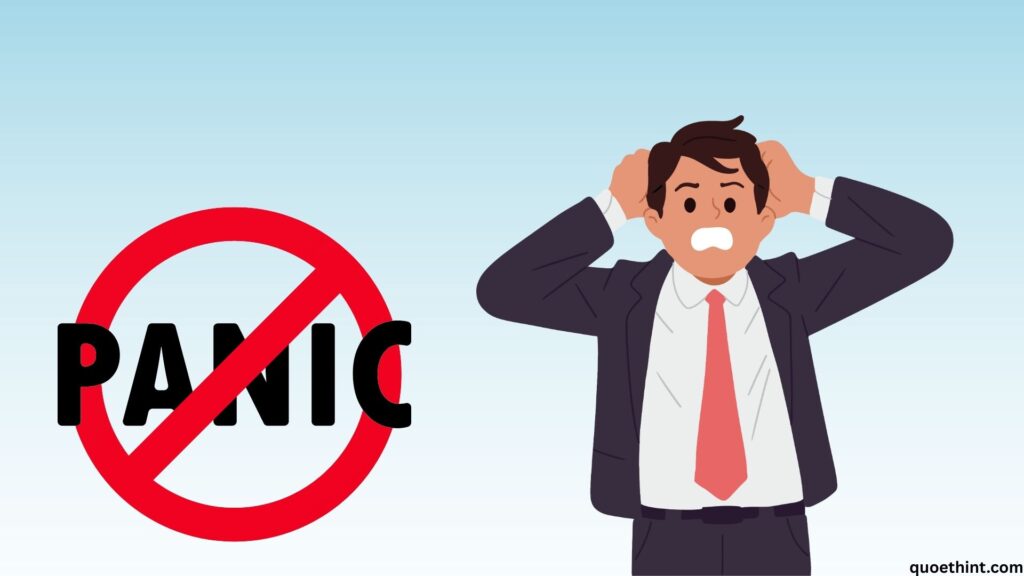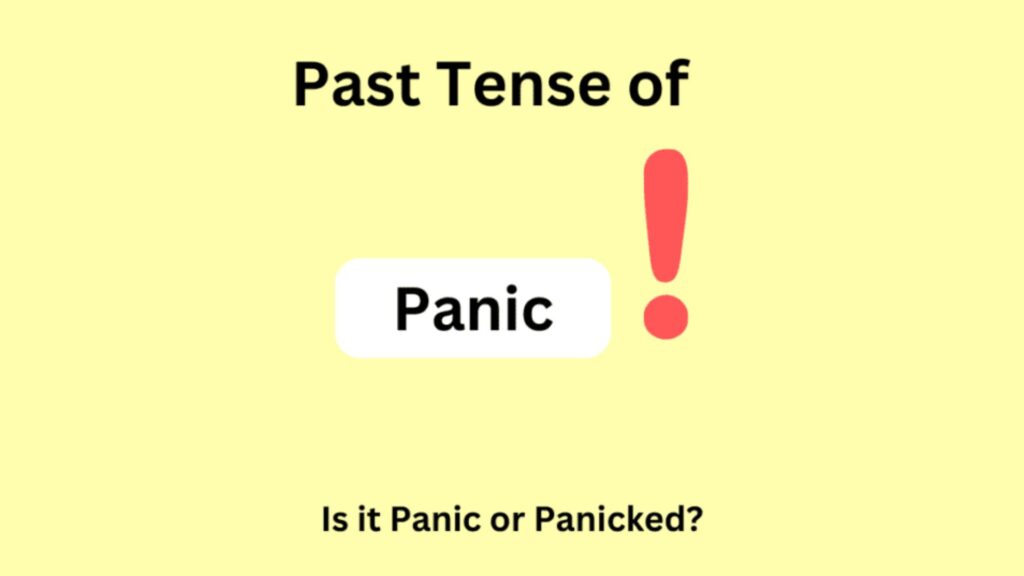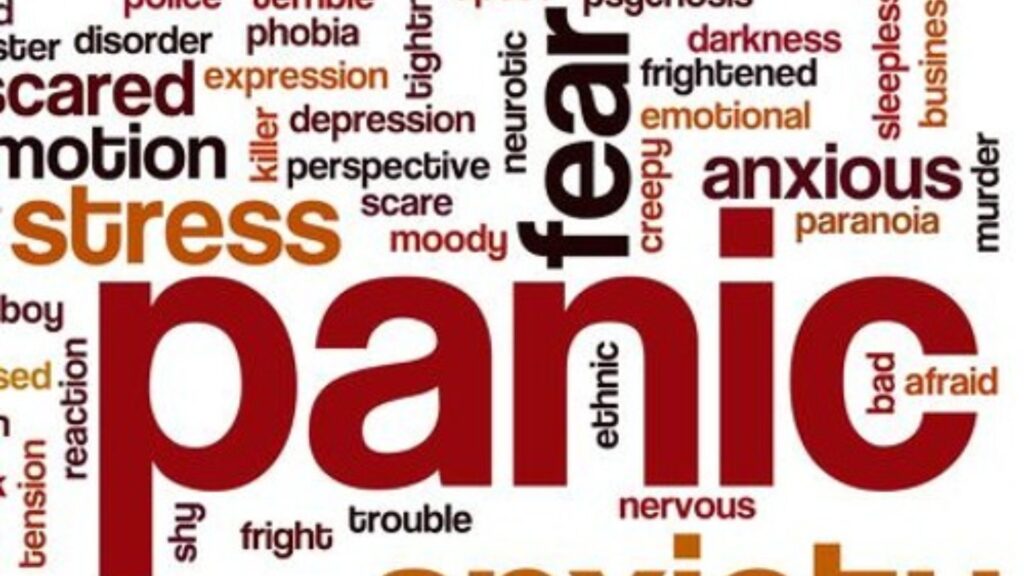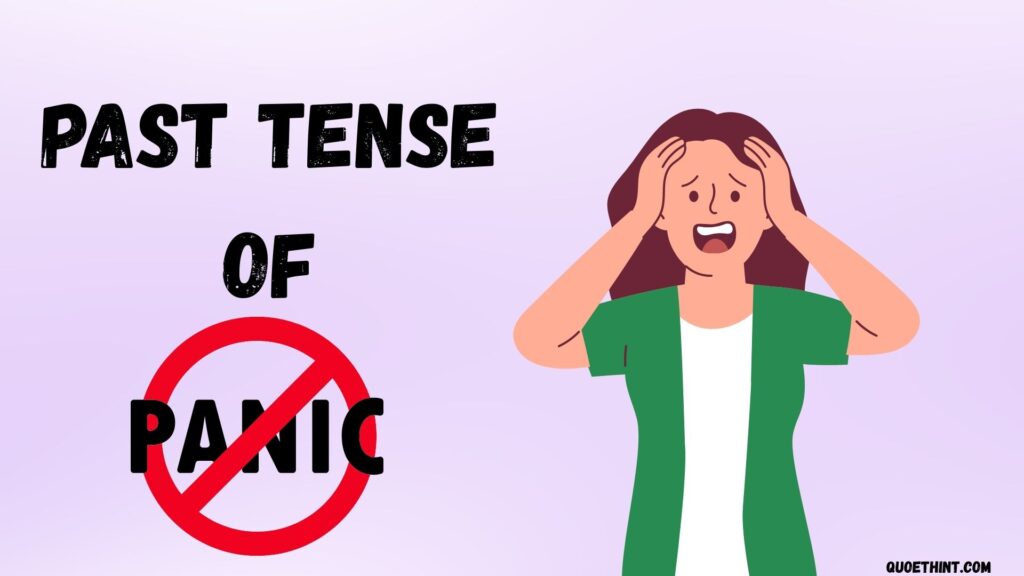English has a knack for making learners second-guess themselves. Words that seem straightforward often twist into something unexpected when you shift their tense. One such puzzler is the verb panic. Should you say “Yesterday I panic” or “Yesterday I panicked”? Let’s break it down so you never hesitate again.
Understanding the Word “Panic”

The word panic can serve as both a noun and a verb.
- As a noun, it refers to sudden fear or anxiety. Example: “There was widespread panic during the blackout.”
- As a verb, it means to feel or cause intense fear. Example: “Try not to panic before your big exam.”
This dual role is what sometimes causes confusion. Learners wonder if verbs like panic follow the usual past tense rules or if they’re irregular.
The Correct Past Tense of Panic
The correct past tense of panic is panicked, not panic.
- ✅ Correct: “I panicked when the fire alarm rang.”
- ❌ Incorrect: “I panic when the fire alarm rang.”
Why? Because in English, when a verb ends with -ic, we often add a k before the -ed. This keeps the pronunciation clear. Without that k, “paniced” would be confusing and awkward.
Verb Tense Table for Panic
Here’s a quick verb tense table you can use as a reference:
| Tense | Example Sentence |
|---|---|
| Present tense | “I always panic before public speaking.” |
| Past tense | “I panicked during my first presentation.” |
| Future tense | “I will probably panic if I forget my notes.” |
| Present participle | “She is panicking about her exam results.” |
| Past participle | “They have panicked several times before.” |
Why the Extra “K” in Panicked?

This detail confuses many learners. The spelling rule is simple:
- If a verb ends in -ic, add -ked to form the past tense.
- Examples:
- Picnic → picnicked
- Mimic → mimicked
- Panic → panicked
This rule prevents mispronunciation. “Paniced” might trick you into saying it like “pan-iss-ed.” By adding the k, the sound stays sharp: /ˈpænɪkt/.
Scenario Examples Using “Panicked”
To make this stick, let’s drop into a few everyday situations.
1. Email to a Colleague
Subject: Sorry for the Mix-up
Hi James,
I completely panicked when the client asked about last quarter’s figures, and I gave them the wrong numbers. I’ll correct it immediately and send an updated report.
Thanks for covering for me earlier.
Best,
Samantha
2. Conversation During an Emergency
- Alex: “What happened during the drill?”
- Maria: “Honestly, I panicked and forgot the exit route.”
- Alex: “Don’t worry, that’s why we practice.”
3. Workplace Scenario
During a system crash, Daniel panicked and restarted the server without saving the data. His manager later explained that staying calm would have prevented the loss.
Using Panic as a Noun
Not every situation needs the verb form. Sometimes panic as a noun works better.
- “There was panic in the stock market after the announcement.”
- “The sudden blackout caused widespread panic in the neighborhood.”
Here, the word doesn’t change form because it’s not a verb.
Synonyms of Panic and Panicked
Building vocabulary makes your writing richer. Instead of repeating panic or panicked, you can use:
- Alarm
- Distress
- Frenzy
- Hysteria
- Terror
- Anxiety
- Dread
- Consternation
- Turmoil
For example: “She was in a state of frenzy when she lost her passport.”
Panic in Different Contexts

The word also pops up in varied situations:
- Everyday conversation: “I always panic when I misplace my phone.”
- Emergencies: “The passengers panicked when the bus suddenly swerved.”
- Finance: “Stockholders panicked after the market dipped.”
- Crowds: “The crowd panicked when the gates were locked.”
These examples show the versatility of the word.
Cross-Referencing Other Tricky Verbs
English is full of verbs that don’t behave as expected. For example:
- Swing → swang/sung (though “swung” is most common)
- Troubleshoot → troubleshot
- Fall down → fell down
Comparing these with panic → panicked shows how spelling and tense patterns differ across verbs.
Fun Fact: Panic Isn’t Always About Fear
Interestingly, panic also refers to a type of grass in the genus Panicum, often called panic grass. This botanical meaning has nothing to do with emotions but shows how diverse English can be.
Quick FAQ on Panic and Panicked
Is “paniced” ever correct?
No. The correct spelling is always panicked.
What’s the pronunciation of panicked?
It’s /ˈpænɪkt/ — short and sharp.
Can panicked be an adjective?
Yes. Example: “Her panicked expression gave her away.”
What’s the meaning of panicked?
It describes someone acting in a fearful or frantic way.
Final Thoughts
The next time you hesitate, remember: the past tense of panic is panicked. Whether you’re writing an email to your boss, telling a friend about a stressful day, or describing a moment of fear in a story, panicked is the form you need.
And if you’re still unsure, think of this rule: verbs ending in -ic take -ked in the past tense. That little k makes all the difference.
Bugti is the founder of Quoethint.com, a hub for English language tips, writing advice, and grammar guidance. With years of experience in English studies and a passion for clear communication, Bugti created this platform to make grammar and writing easy to understand for everyone.
